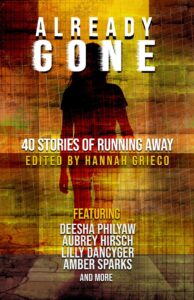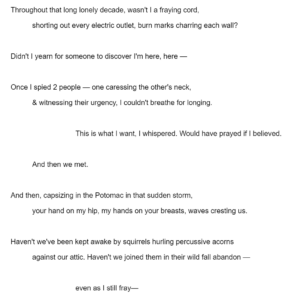When people urinate together, it foams.
Igbo Proverb
I sat across the room from the smallish man whose ears vomited hair. He spoke for a long time without getting to the point. It was the norm I’d learned since I began to sit in these meetings—the old men must go through many proverbs and anecdotes. Proverbs are the oil with which Igbo people eat words. Tradition or not, I was not pleased with being held hostage in the living room of our house.
It had been three months since my father’s burial, and I thought the meetings with relatives I didn’t know had ended, but here we were yet again. Was the old man here, like the others before him, to stake claim of my father’s property? My father’s younger brother had already commissioned himself custodian of everything, so there was nothing left for my vulture extended family to devour. Perhaps, this one was here to take me away and raise me like some uncle had proposed just a month ago. Of course, my mother had steered the uncle off with a polite “No thank you,” but I turned to her now, smiling at the old man’s speech, and wondered if she’d be able to say no again.
I barely knew this old man. The only things remarkable about him were, (a) his bald head with hair trimmings at the edges like a Roman emperor’s wreath; (b) that he held a PhD in something, a sign of significant intelligence, according to everyone except my father; and (c) by the time I was 10 years old I was taller than him. Besides this information, I didn’t know who he was. Did calling him uncle mean he was my father’s brother? No, I was told. My mother had unsuccessfully tried to explain his connection to our family. It was one of those blood ties that weave into oblivion. I always lost interest when the family tree had more than two branches. Everyone referred to the man by his initials, so we called him Uncle TFC. Even after his death many years later, his obituary bore TFC, as if he never had a given name.
Uncle TFC had called our house just a few days before and said he was coming to deliver an important announcement that required my presence. My mother invited a handful of our close relatives, as was customary in such cases. She need not have bothered because Uncle TFC arrived with an army of distant relatives to witness his crucial declaration. After he received the offering of kola nuts and a bottle of Schnapps that my mother presented to the group, Uncle TFC addressed the crowd.
There were more people squeezed into our living room than we had space to accommodate. Most were standing, even though we brought in chairs with torn upholstery that visitors were not meant to see. Relatives, many of whom I’d never seen before, crammed the room to the point that I felt there would not be enough air to go around. Even though the door to the balcony was thrown open and the window blinds were drawn, the whirling ceiling fan was powerless to alleviate the heat, which stuck to our skin like snail slime. Only the bottle of Schnapps on the living room table seemed to have any space to itself. One of the men unscrewed it and poured a cork-full of the clear liquid on our tiled floor, a libation to the ancestors, who everyone believed also crowded the living room.
I should have been one of the people standing since I was only fourteen and the youngest in the room, but I was the center of attention, as I had been at many such meetings since my father died nine months ago. It took six months to plan his funeral and another three months of mourning, at which time I wore only all-white outfits, even to school functions. Uncle TFC’s visit coincided with the end of my mourning period. I sat on the brown threadbare three-seater couch, squeezed between my mother and two aunts. My eyes were fixed on the green bottle of Schnapps, and I half-listened to Osita Osadebe’s highlife floating through the open windows from the megaphones of the record shop down the street. Ten minutes into the meeting, the bottle was already half empty, and the liquid danced every time someone picked it up and poured from it.
Uncle TFC wound a tale outlining the genealogy of our family, as far back as was verifiably impossible, spiced with flashbacks of exploits he shared with my father when they were children. He told tales of how our great-grandfather came to settle in our village and became prosperous even though he had no family. The crowd “Hmm’d” and “Ah’d,” moved by the sentimental memories or pretended to be so they didn’t appear lost or ignorant. In contrast, my mother leaned forward in rapt attention like she was in church, and the man was preaching the gospel. I wanted to tap her, to remind her of her promise never to let anyone take me away, even if custom demanded that I needed to be raised by a father figure. But to talk to her at this point, even to whisper, would be considered an insult to the elder who was speaking.
The man’s stories reminded me of a story my father told us of his childhood. At Christmastime, my father’s family, one of the few wealthy enough to kill a goat for the celebration, would make goat stew for lunch. After lunch, he and his brothers would refuse to wash their hands so they could stick their fingers, stinking of goat meat, under their friends' noses when they later went out to play. The friends, smelling the stench, would realize how good my father had it. An equivalent of showing up to a party wearing a limited edition of next season’s top fashion, I guessed. My father’s rounded stomach would bounce up and down as he laughed at the memory, wiping tears from his eyes, even though he had told us the story enough times that we could retell it word for word. Something told me Uncle TFC was one of the children whose faces were smothered by my father’s unwashed hands.
Uncle TFC concluded his stories by telling the enwrapped audience how my grandfather, whose philanthropy was legendary, took over the responsibility of paying for his education and that of his siblings after his own father passed away when they were still young. I had heard stories of other people my grandfather did such things for. With a few more parables and anecdotes—most of which I didn’t understand—Uncle TFC finally cleared his throat and looked at me, and I knew he was about to deliver the message that brought him to our house.
He stood on the tip of his toes, stretched to his almost five feet height, forefinger pointed to the ceiling like a fire and brimstone preacher, and announced, “Every good deed deserves a reward. It is now my turn to repay the generosity your grandfather showed me,” his voice booming.
Then he turned to speak directly to my grandfather’s monochrome picture hanging on the faded blue wall behind me. “I promise to take up the responsibility of paying for Kanayochukwu’s schooling from now till he is done with his education, and also—,” he paused to let the applause that interrupted him die down, “I will give him a stipend of one thousand Naira monthly, until the end of his studies.”
With that, he whisked out the first cheque and waved it like the Nigerian flag during a parade. A rousing ovation, accompanied by flashes from a camera I didn’t know was hidden in the crowd, resounded. Relief pooled at my feet, but I was still a little skeptical. There could be more. The man was still standing, swaying like a roly-poly doll.
My aunt, the one sandwiching me on the couch, waddled to her feet and did a 360-degree dance with arms raised. “Praiseeeeeeee the Lord!” she sang, and the crowd responded, “Hallelujah,” like they were in an evangelical crusade, followed by another round of applause. It wasn’t clear if the second applause was for God or still for Uncle TFC.
When the commotion finally died, Uncle TFC sat down, and I allowed myself to relax into the chair. Perhaps, this was just it. Perhaps, I had finally met a well-meaning uncle. One who was not out to rip everything away from us. My mother sighed, relieved as I was, stood and gave a short speech. She offered prayers of financial multiplication for Uncle TFC, protection from evil, and a declaration that someone will do for him and his unborn generations as he has done for us. The speech was surpassed in warmth only by the film of tears that made her eyes glitter. Every time her voice broke, she wrung her hand to regain her composure, and it cut me like the thin edge of a sharp blade. I silently railed, first, at my father for dying and putting her in a position where she felt she needed the help of strangers to take care of us, and then at my mother for acting as if she had just won the lottery.
After my mother spoke, a self-appointed representative of my father’s extended family, admonished my mother for speaking before the men there to represent the family had a chance to speak, then also made a speech. He raised a toast from the now three-quarters-empty bottle of Schnapps and praised the strong ties of our family. He stressed that in Igbo culture, raising children was the job of ora—the village always took care of its own.
“That is why we refer to children as Umu anyi, and wives as Nwunye anyi,” he said, looking around like he dispensed wisdom and deserved a round of applause like TFC had been getting all afternoon. When he got none, he barked at the crowd like they were errant children, “It would not change now that it is our turn.” He was finally rewarded with applause.
Another uncle, even further removed from us than TFC, felt the need to cross the room, lay his hand on my mother’s shoulder, and say,
“Stop crying,” although she was not. “All these men are now your husband, and Kanayo,” he said, turning to me, “They are your fathers.”
I wanted to tell him not to be ridiculous, but I’d learned to use only my inner voice in the meetings since I was told that if I insulted an elder, I would have to buy a cow to appease them.
A few other men spoke, each claiming some relationship or another, each repeating what had already been said, just changing the proverb that accompanied the message. At that point, I sincerely expected the event to air on the evening news.
After the theatrics that day, the cheque Uncle TFC waved around was the only one I ever got from him. He never paid for a single term of my schooling. In fact, that meeting was the last time I saw him until he died about ten years later—I didn’t attend the funeral. Not one person from the horde of applauding witnesses ever asked if the promises made were being kept. Perhaps the fear that the enquirer may be solicited to chip in kept them mute. Or maybe they knew it was all for show and would have been surprised if someone suggested they make good on their promise.
The principle that raising a child was the community’s responsibility, as held by the Igbo society, had been passed down from generation to generation. It was once taken literally in the old days that when a man dies, his next of kin inherits, along with his property, his wife and children. In some cases, this may involve marrying the dead man’s wife, and on rare occasions, the male child was taken from the woman to be raised by an uncle, as someone had casually suggested in my case. While this must have been crushing for the children, it is the belief of the Igbo patriarchal society that a male child has to be raised under the mentorship and protection of a male member of the family. The overarching idea is that children are the extension of the community, belong to the community, and, therefore is the community’s responsibility to raise. It is often said in Igbo idioms that everything is easier when done together, and I figure that raising children is no exception.
Although the way this community responsibility was carried out in the highly patriarchal Igbo society had plenty to be criticized, in principle, the objective that society takes care of its members was propitious. Unfortunately, the idea of the community's responsibility towards the family of the deceased, like chewing gum wearing out its sweet taste, has remained in language but not in essence. It has become a phrase used as a conversation filler or a tool to dispossess widows of their property in the name of using the resources to raise their children.
In the end, the promise of community care that Uncle TFC offered was as hollow as the empty bottle of Schnapps that sat on our living room table after the crowd dispersed.














